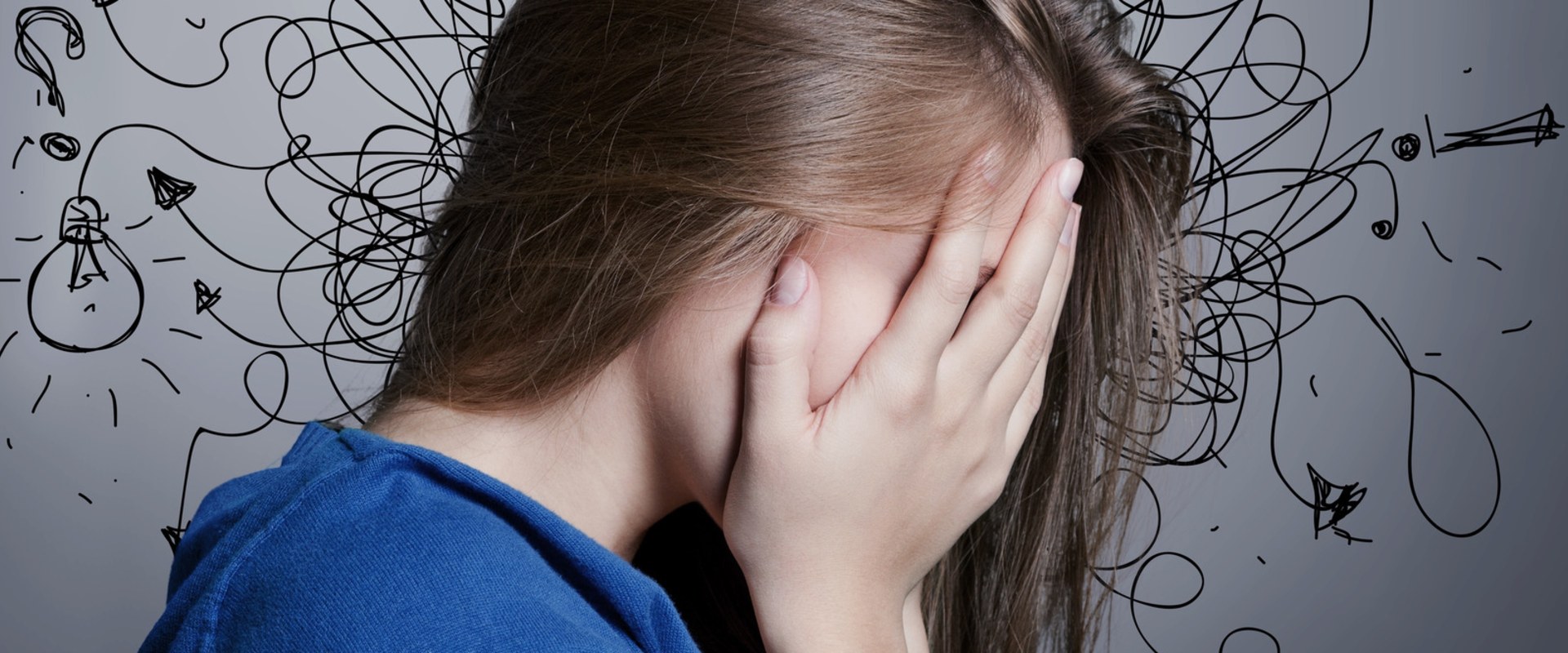Anxiety is one of the most common mental health issues affecting people in today's world. It can be difficult to manage and can significantly impact a person's quality of life. Fortunately, there are a number of strategies and treatments available to help reduce anxiety and improve overall wellbeing. In this comprehensive overview, we'll explore the various methods of anxiety relief, from lifestyle changes to medications, and discuss how each can help manage and prevent anxiety.
Anxiety
is a common mental health condition that can affect anyone at any age.It is a feeling of worry, fear or unease that can impact your daily life. Anxiety can manifest itself in different ways, and can be classified into several different categories. The most common types of anxiety disorders include generalized anxiety disorder (GAD), panic disorder, social anxiety disorder, and specific phobias. The causes of anxiety can be divided into three main categories: genetics, environment, and lifestyle.
Genetics may be a factor in some cases, as anxiety can run in families. Environmental factors such as a traumatic event or chronic stress can also trigger anxiety. Lifestyle factors such as poor diet, lack of exercise, and chronic sleep deprivation can also contribute to feelings of anxiousness. Common signs and symptoms of anxiety include restlessness, difficulty concentrating, racing thoughts, insomnia, irritability, sweating, and shortness of breath.
Anxiety can interfere with a person's daily life and make it difficult to perform normal activities. Fortunately, there are many treatments available for anxiety. Medications such as antidepressants and anti-anxiety drugs can help to reduce symptoms of anxiety. Therapy can also be an effective treatment for anxiety disorders.
Cognitive-behavioral therapy (CBT) is the most commonly used form of therapy to treat anxiety disorders. This type of therapy helps individuals to identify and change negative thinking patterns that may be contributing to their anxiety. In addition to medications and therapy, there are many coping strategies that can help manage anxiety. Relaxation techniques such as deep breathing, progressive muscle relaxation, and mindfulness meditation can help reduce stress and ease anxious feelings.
Regular exercise can also help to reduce stress levels and improve mood. Stress management techniques such as time management, goal setting, and problem-solving can help individuals better cope with stressors that may be contributing to their anxiety. By understanding the basics of anxiety and its associated treatments and coping strategies, you can gain greater insight into how to manage your anxiety and achieve relief.
Causes of Anxiety
Anxiety is a complex condition and its causes can vary from person to person. While it’s not clear why some people experience anxiety and others don't, potential causes may include genetics, environment, and lifestyle.Genetics
- Certain genetic predispositions can increase the likelihood of developing anxiety.For example, a family history of anxiety or other mental health issues can be a factor.
Environment
- Unfavorable environments such as poverty, violence, or a chaotic home life can increase the risk of anxiety.Lifestyle
- Poor diet, lack of exercise, substance abuse, and unhealthy coping mechanisms can all contribute to anxiety. While anxiety is not always preventable, understanding the potential causes can help you manage your own risk factors.Treatments for Anxiety
When it comes to treating anxiety, there are a variety of options available.Medication, therapy, and lifestyle changes are all effective strategies for managing anxiety. Medication is one of the most common treatments for anxiety. Anti-anxiety medications, such as benzodiazepines and selective serotonin reuptake inhibitors (SSRIs), can help reduce feelings of anxiety, as well as the physical symptoms associated with it. It is important to note, however, that medication should always be used in conjunction with therapy and lifestyle changes.
Therapy is another effective treatment for anxiety. Cognitive Behavioral Therapy (CBT) is a type of psychotherapy that focuses on helping individuals identify and challenge unhelpful thinking patterns and behaviors that contribute to anxiety. It also helps individuals develop more helpful coping skills to manage their anxiety. Lifestyle changes can also be an important part of managing anxiety.
Eating a balanced diet, exercising regularly, getting enough sleep, and engaging in stress-relieving activities such as yoga or meditation can all help reduce feelings of anxiety. Additionally, reducing or eliminating caffeine and alcohol consumption can help reduce symptoms of anxiety.
Signs and Symptoms of Anxiety
Anxiety can manifest itself in both physical and psychological symptoms. Common physical symptoms include increased heart rate, feeling lightheaded, trembling, sweating, and shortness of breath. Psychological symptoms can include fear, worry, difficulty concentrating, negative thoughts and feelings of impending doom. Another symptom of anxiety is an inability to sit still and relax.This can be accompanied by feelings of restlessness and difficulty sleeping. Some people may even experience physical pain or tightness in their muscles, which can be indicative of anxiety. Anxiety can also lead to changes in behavior. People may become more irritable or easily overwhelmed, and they may start avoiding situations or activities that make them anxious. They may also become more socially isolated and engage in less physical activity. It is important to remember that while some of these signs and symptoms may be normal in certain situations, if they persist or become more severe, it is important to seek help.
A qualified mental health professional can help you determine if your symptoms are a sign of an anxiety disorder or another condition.
Coping Strategies for Anxiety
Anxiety can be managed through a variety of coping strategies. Different strategies may work for different people, so it’s important to experiment and find what works best for you. Relaxation techniques, exercise, mindfulness, and stress management are all popular methods for managing anxiety. Relaxation techniques such as deep breathing, progressive muscle relaxation, and guided imagery can help reduce physical symptoms of anxiety such as a racing heart or tense muscles.Deep breathing involves taking slow, deep breaths and focusing on your breath as it enters and exits your body. Progressive muscle relaxation involves tensing up and then releasing the muscles in your body one by one. Guided imagery involves visualizing pleasant scenes that evoke feelings of calmness and relaxation. Exercise is also helpful in managing anxiety.
Regular physical activity releases endorphins, which can help reduce stress and improve mood. Exercise can also help distract from anxious thoughts. Aim for at least 30 minutes of physical activity a day for best results. Mindfulness is a practice of focusing on the present moment without judgment.
Mindfulness can help you recognize when your thoughts are unhelpful or irrational and refocus on the present moment. There are a variety of ways to practice mindfulness, such as mindful walking, yoga, and meditation. Stress management is also important for managing anxiety. Identifying the sources of stress in your life and developing strategies to manage them can help reduce anxiety levels.
Effective stress management techniques include setting realistic goals, problem-solving, time management, and learning how to say “no”.In conclusion, anxiety is a common mental health condition that can have serious effects on an individual's life. It is important to understand the causes, signs and symptoms, treatments, and coping strategies for anxiety in order to effectively manage it. If you are struggling with anxiety, seek professional help and resources for further information.




Leave Reply